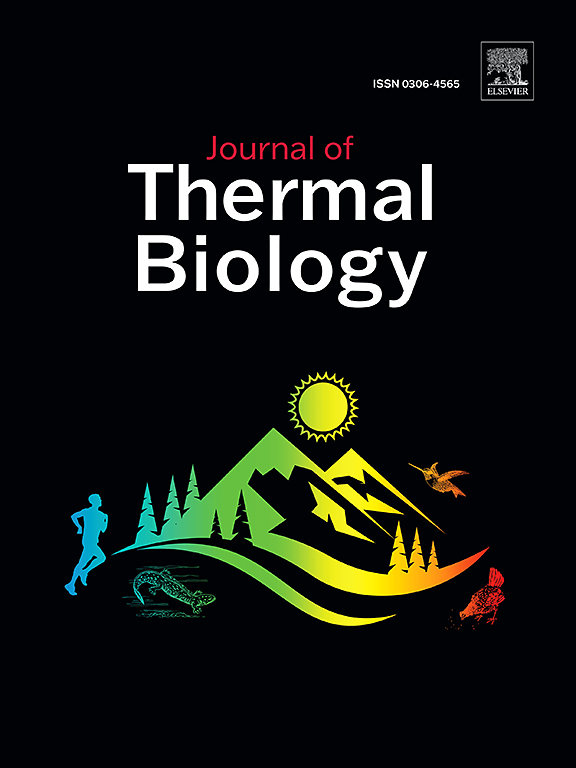Effects of reversing the light-dark cycle on growth performance and intestinal health in heat-stressed broilers
IF 2.9
2区 生物学
Q2 BIOLOGY
引用次数: 0
Abstract
Heat stress (HS) has severely restricted the growth and yield of poultry. Reversal light-dark cycles (RLD) are a low-cost and highly effective method to regulate circadian rhythms. However, current studies have not demonstrated whether this method can improve the intestinal injury induced by HS in broilers. This research collected the intestinal tissues, and the experiment was carried out by HE staining, molecular biology, 16S rRNA sequencing, and other methods. Our results show that HS not only hinders the growth and development of broilers but also leads to increased stress levels in the body and impairs intestinal function. RLD treatment increased significantly the body weight of broilers, alleviated oxidative stress caused by HS, promoted the release of melatonin, as well as reduced the expression of cortisol and heat shock protein 70. RLD also induced increased gene and protein expression of tight junction proteins and clock genes, and altered the structure of the cecal microbial community by increasing the abundance of Enterococcus faecalis, Lactobacillus, and Bacteroidetes. Furthermore, the activities of intestinal digestive enzymes and absorption enzymes were significantly improved. In conclusion, RLD improves the growth performance of broilers under HS conditions by reducing the stress response and protecting intestinal function.
逆转光暗循环对热应激肉鸡生长性能和肠道健康的影响
热应激严重制约了家禽的生长和产量。反转光暗周期(RLD)是一种低成本、高效的调节昼夜节律的方法。然而,目前的研究尚未证实该方法是否能改善HS诱导的肉鸡肠道损伤。本研究采集肠道组织,通过HE染色、分子生物学、16S rRNA测序等方法进行实验。本研究结果表明,HS不仅会阻碍肉仔鸡的生长发育,还会导致体内应激水平升高,损害肠道功能。RLD处理显著增加肉仔鸡体重,减轻HS引起的氧化应激,促进褪黑激素的释放,降低皮质醇和热休克蛋白70的表达。RLD还诱导紧密连接蛋白和时钟基因的基因和蛋白表达增加,并通过增加粪肠球菌、乳杆菌和拟杆菌的丰度改变盲肠微生物群落的结构。肠道消化酶和吸收酶活性显著提高。综上所述,RLD通过降低应激反应和保护肠道功能,提高了HS条件下肉仔鸡的生长性能。
本文章由计算机程序翻译,如有差异,请以英文原文为准。
求助全文
约1分钟内获得全文
求助全文
来源期刊

Journal of thermal biology
生物-动物学
CiteScore
5.30
自引率
7.40%
发文量
196
审稿时长
14.5 weeks
期刊介绍:
The Journal of Thermal Biology publishes articles that advance our knowledge on the ways and mechanisms through which temperature affects man and animals. This includes studies of their responses to these effects and on the ecological consequences. Directly relevant to this theme are:
• The mechanisms of thermal limitation, heat and cold injury, and the resistance of organisms to extremes of temperature
• The mechanisms involved in acclimation, acclimatization and evolutionary adaptation to temperature
• Mechanisms underlying the patterns of hibernation, torpor, dormancy, aestivation and diapause
• Effects of temperature on reproduction and development, growth, ageing and life-span
• Studies on modelling heat transfer between organisms and their environment
• The contributions of temperature to effects of climate change on animal species and man
• Studies of conservation biology and physiology related to temperature
• Behavioural and physiological regulation of body temperature including its pathophysiology and fever
• Medical applications of hypo- and hyperthermia
Article types:
• Original articles
• Review articles
 求助内容:
求助内容: 应助结果提醒方式:
应助结果提醒方式:


